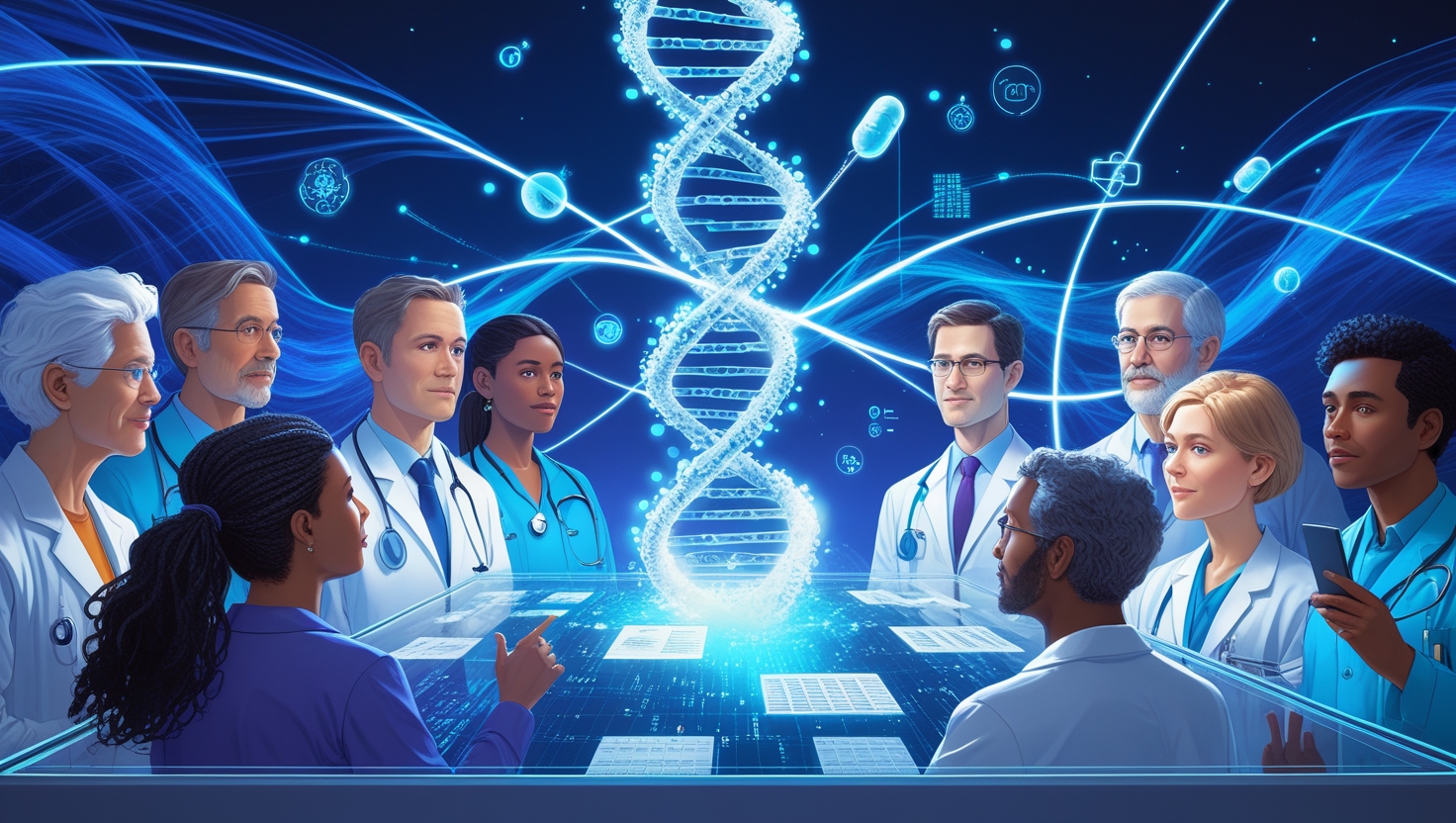Health care is undergoing a transformation, and it’s being driven by data. Traditionally, doctors have treated patients using a one-size-fits-all approach. But what if treatments could be tailored specifically to your body, your genes, and your unique lifestyle? That’s the promise of precision medicine—a new way of thinking that is revolutionizing how we diagnose, prevent, and treat illness.
What Is Precision Medicine?
Precision medicine (also called personalized medicine) is a medical approach that uses data about a person’s genetics, environment, and lifestyle to create customized treatment plans. Rather than giving every patient the same medicine or therapy, doctors can now use data to figure out what will work best for each individual.
For example, two people with the same disease might respond very differently to the same drug. Precision medicine helps identify these differences in advance and match patients with the treatments that are most likely to help them.
How It Works
The core of precision medicine is data. This includes:
-
Genetic information: DNA testing helps reveal a person’s risk for certain diseases and how they may respond to different drugs.
-
Medical history: Data from past treatments, allergies, and conditions help personalize care.
-
Lifestyle and environment: Information like diet, exercise, location, and exposure to pollutants can influence health risks.
-
Technology and devices: Wearable health trackers and smart watches provide real-time data on sleep, heart rate, activity, and more.
All this information is collected, analyzed, and used to guide health care decisions in a much more accurate and targeted way than ever before.
Real-World Examples
Precision medicine is already making a difference in several areas of health care:
1. Cancer Treatment
In cancer care, doctors now use genetic testing to understand the specific mutations in a tumor. This allows them to choose targeted therapies that attack the cancer without harming healthy cells. For example, certain breast cancer drugs only work for patients with specific genetic markers.
2. Rare Diseases
For people with rare genetic conditions, precision medicine can help doctors find the exact cause of the disease and, in some cases, suggest personalized treatments that would have been impossible a decade ago.
3. Drug Response
Some people break down medications faster or slower than others due to genetic differences. With precision medicine, doctors can adjust the dose or pick a different drug based on how your body is likely to respond.
The Role of Big Data and AI
The growth of precision medicine wouldn’t be possible without big data and artificial intelligence (AI). Health care systems, research centers, and technology companies are working together to collect massive amounts of data from millions of patients.
AI helps by sorting through this data to find patterns and predict how certain treatments might work for different people. It can also help discover new diseases or find better ways to diagnose old ones.
Benefits of Precision Medicine
-
Better outcomes: Treatments are more effective because they are tailored to the patient.
-
Fewer side effects: Knowing in advance how someone might react to a drug helps reduce negative reactions.
-
Prevention: Genetic testing can reveal risks before symptoms even start, allowing for earlier intervention.
-
Cost savings: Personalized treatment plans can reduce trial-and-error and unnecessary procedures.
Challenges and Concerns
As promising as precision medicine is, it comes with challenges:
-
Privacy: Storing and sharing genetic and health data raises important questions about privacy and data security.
-
Cost and access: Genetic testing and personalized treatments can be expensive and may not be covered by all insurance plans.
-
Data gaps: Precision medicine works best with large, diverse data sets—but many groups are underrepresented in current databases.
Health care providers and governments are working to address these issues by creating clearer policies, improving data protection, and expanding access to genetic testing.
What’s Next?
The future of health care is becoming more personal. As technology continues to improve, precision medicine will likely become the norm rather than the exception. We may soon see:
-
Personalized vaccines
-
Genetic editing to fix inherited diseases
-
AI-powered health apps that offer real-time advice
-
More preventive care based on individual risk factors
Final Thoughts
Precision medicine represents a major shift in how we approach health care. Instead of guessing what might work, we now have tools to make more informed and personal decisions. Thanks to the power of data, doctors can treat the person—not just the disease.
For patients, this means more effective care, fewer side effects, and a better understanding of their own health. The future of medicine is here—and it’s tailor-made for you.





